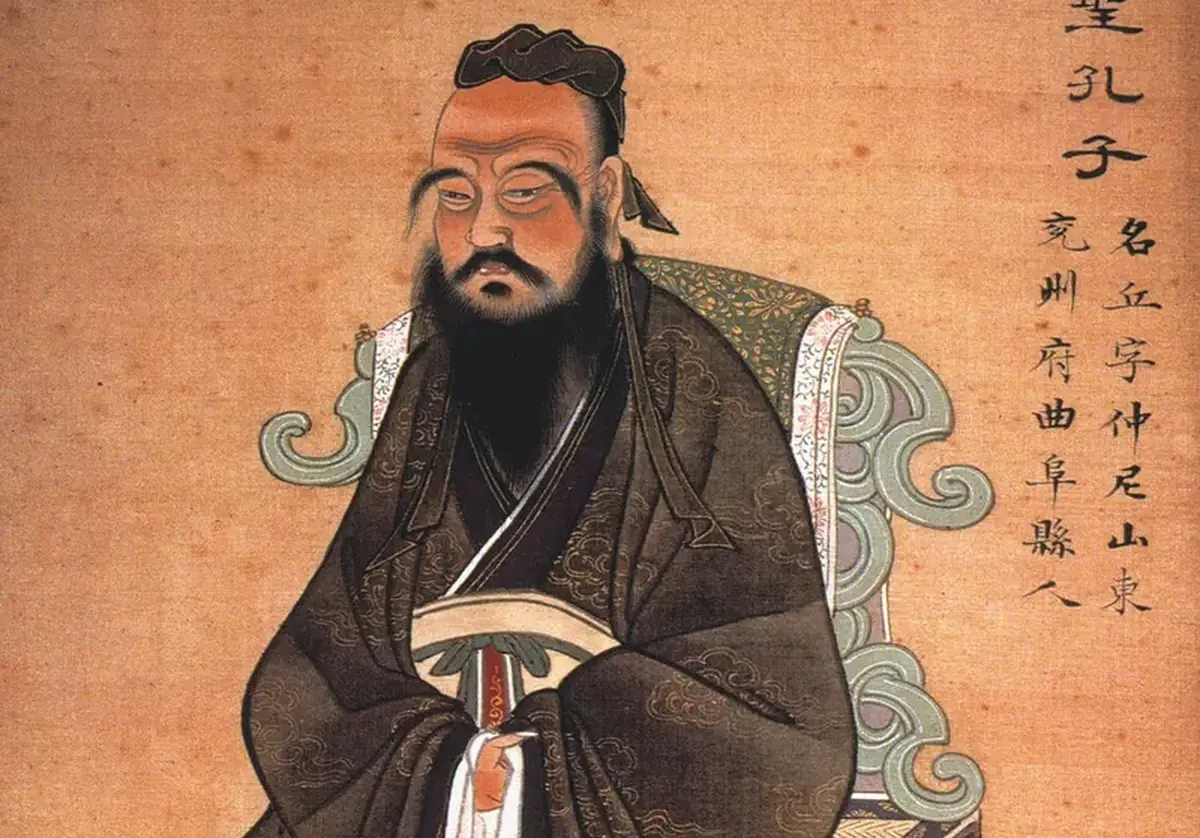
The true name of the founder of ancient Chinese philosophical thought is Kong Qiu, but his students knew him as Kongzi or Kong Fuzi, which means “Master Kong.” By the age of 22, Confucius had already made a name for himself in education—he was the first to teach subjects in his own private school. This dedicated scholar established the first university, systematized historical records, and left behind a guide for living in harmony and happiness. The teachings of this Chinese thinker and philosopher are often equated with religion due to the profound impact his moral and ethical system had on society. What began as one of many intellectual pursuits during the Warring States period eventually evolved into Confucianism, which became the state ideology in China and East Asia. Who was this man who set the standards for the behavior of officials, warriors, peasants, and princes?
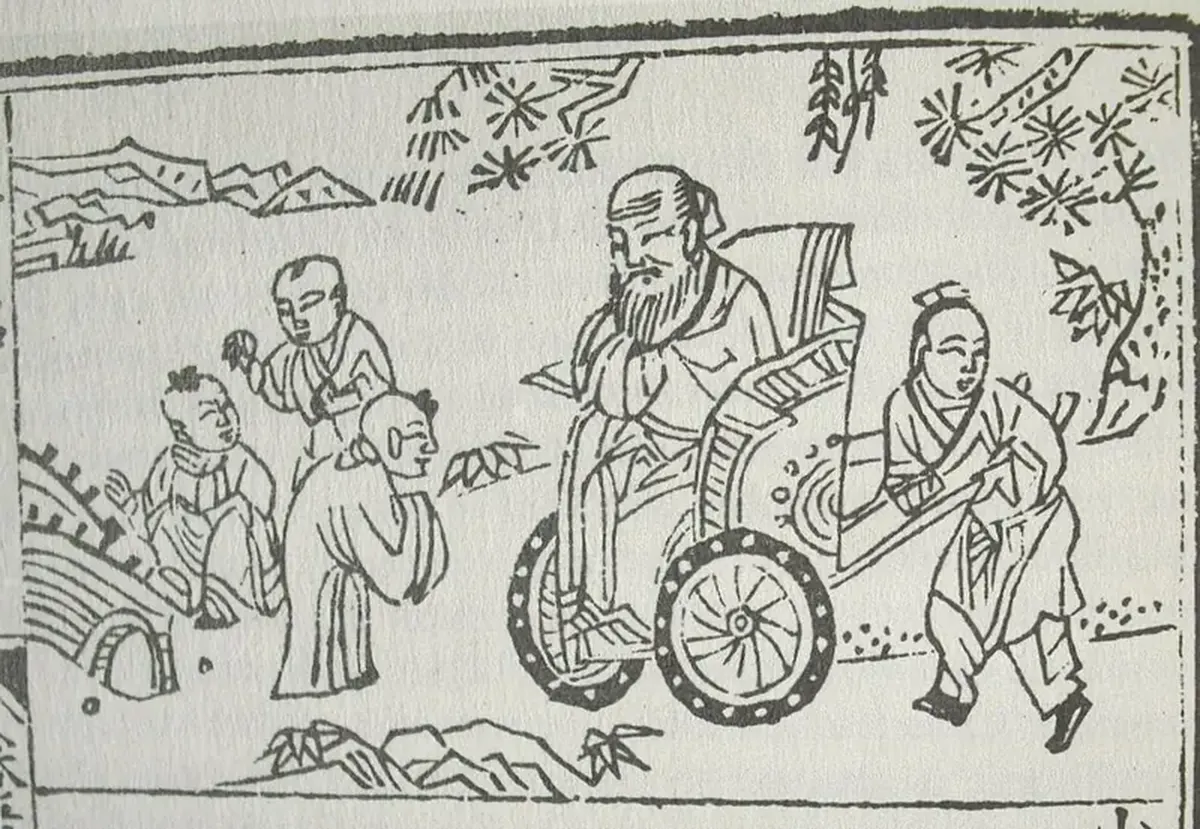
“Confucius and the Children” — an illustration from a children’s reading book (1680)
Biography of Confucius
On September 28, 551 B.C.E., a 17-year-old concubine of a 63-year-old military man from a declining aristocratic family gave birth to a son. From two older wives, the father of the newborn Kong Qiu had several daughters and a disabled son. Soon after, the father passed away: according to some accounts, the future philosopher was just three years old at the time, while others suggest he was only one and a half. His mother raised the boy alone, and even in poverty, she instilled in him a sense of dignity and belonging to a noble lineage. From childhood, the boy engaged in self-education to find his rightful place in life. His first job was managing the granary and overseeing pastures and livestock.
At 17, Kong Qiu lost his mother. By 19, Confucius was married, and by 20, he already had a son (later, a daughter would join the family). Perhaps early fatherhood motivated the young man, who never knew his father, to dedicate his life to educating children. In his own school, Confucius shared his knowledge as China’s first professional teacher. At 22, he taught literature, language, morality, and politics. His students came from all social backgrounds.
Later, Confucius served as an assistant to the head of the public works department, and in 567 B.C.E., he accompanied the ruler of the Lu state, Duke Ding, to peace negotiations with the state of Qi. At the age of 50, Confucius became the chief advisor to the Ji clan in the Lu state, located in Eastern China. He served the Duke of Lu for four years. Continuing his career, at 52, he took on the role of sikou—minister of justice and punishment. It is known that during this time, he had to execute a popular leader and orator, Shaozheng Mao, in Lu.
In the ruins of a patriarchal society, the emperor’s power became nominal, and the place of noble families was taken by officials who gathered around the rulers of various states. These were times of destruction of ancient foundations, internal conflicts, greed among officials, and suffering for ordinary people. Confucius’s career in public service was not easy. Disagreements over state policy forced the philosopher to resign. After leaving office, Confucius, having lost his wife and son by that time, traveled the country with his students for 13 years. He visited various provinces, studying the history of the states through historical records and introducing people to his ideas about a just organization of life.

Confucius’s Cave on Ni Hill
The most pressing issues of Confucius’s time were political stability, effective governance methods, and achieving state power (which, evidently, remains unchanged for modern societies). The model of human relationships and governance created by the philosopher viewed the state as a collective family, with political power analogous to that of a family head: “A father should be a father, a son a son, a minister a minister, and a ruler a ruler.”
In the later years of his life, the thinker returned to Lu to continue his teaching. He summarized his life with these reflections: “At 15, I was focused on learning; at 30, I became independent; at 40, I was free of doubts; at 50, I understood the Will of Heaven; at 60, I learned to distinguish truth from falsehood; and at 70, I followed the desires of my heart.” In his spiritual testament, the philosopher emphasized respect for the collective experience of the past and advocated for the involvement of those who embody old moral norms in addressing the urgent problems of the present. Confucius presented his teachings to over 70 rulers but ultimately could not implement his philosophy in practice.
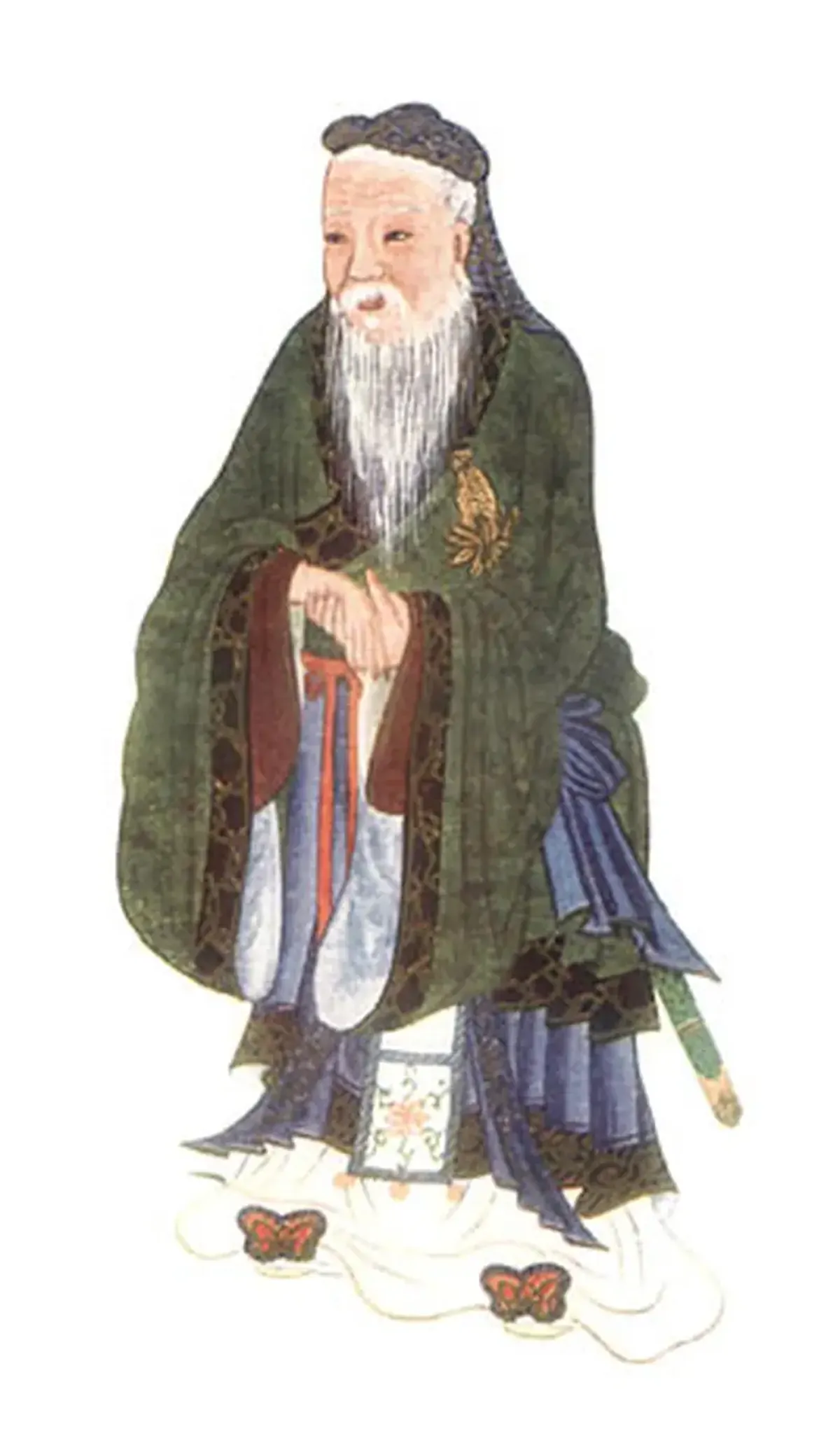
Philosophy of Confucius
The ancient Chinese thinker is credited with the book “Chunqiu” (“Spring and Autumn,” 722–481 B.C.E.), while numerous students compiled the master’s sayings into the book “Lunyu” (“Conversations and Judgments”). Interestingly, Confucius had around 3,000 followers (only 26 of whom are known), and considering the centuries-long influence of his teachings, he is often referred to as “the teacher of ten thousand generations.” Confucianism is based on humanity’s desire for harmony and happiness. The ideal of this philosophy is to create a harmonious society based on the original model, where each individual fulfills their function. This society is built on loyalty to others and personal devotion to elders and leaders. The main moral tenet of this philosophy is: “Do not do to others what you do not wish for yourself.”
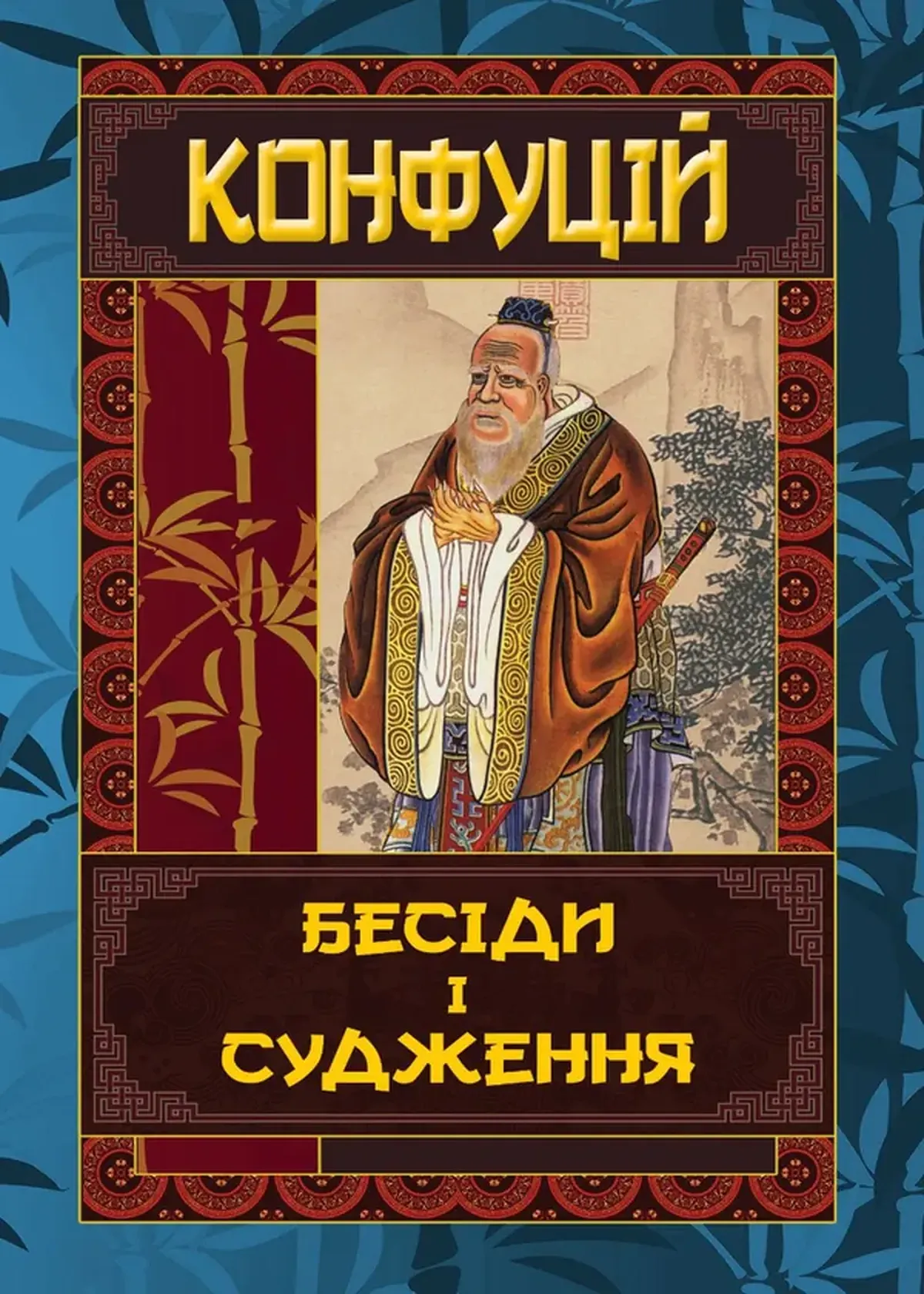
Confucius’s teachings are not a religious ethics system (the church and the author’s theology did not interest him), although Confucius’s philosophy is sometimes viewed as a religion. According to his theory, the five constants of a righteous person are: ren—humanity, compassion, love for others (symbolized by Wood); yi—justice, truth (Metal); li—etiquette, rules, customs, rituals, ceremonies (Fire); zhi—wisdom, prudence, common sense, discernment (Water); and xin—integrity, sincerity, naturalness, a counter to hypocrisy (Earth); wen—cultivation, education, culture (symbolized by tattooing).
What is the relationship between the qualities of a righteous person and a prosperous society? Here’s how Confucius answered this question: “Your honesty, diligence, kindness, courtesy, generosity, and politeness will prevent you from offending anyone. Such a person attracts others, earns their trust, achieves success, and benefits society.” The philosopher’s quotes include: “Do not be upset that you do not hold a high position; be concerned if your abilities do not match your position”; “Do not worry that you lack fame: people will learn about you when you improve your abilities.”
In Confucius’s teachings, there is the concept of junzi, meaning “noble person”: “A noble person sets standards for themselves, while a low person sets standards for others”; “A noble person seeks truth, while a low person seeks profit.” This is an ideal, a model, an example to follow. In contrast to the antithesis, xiao ren, meaning “low person,” who acts solely for personal gain and forgets gratitude once they receive it, the qualities of a model to emulate are honesty and resilience. Such a person is easy to follow because they are just and do not demand the impossible.
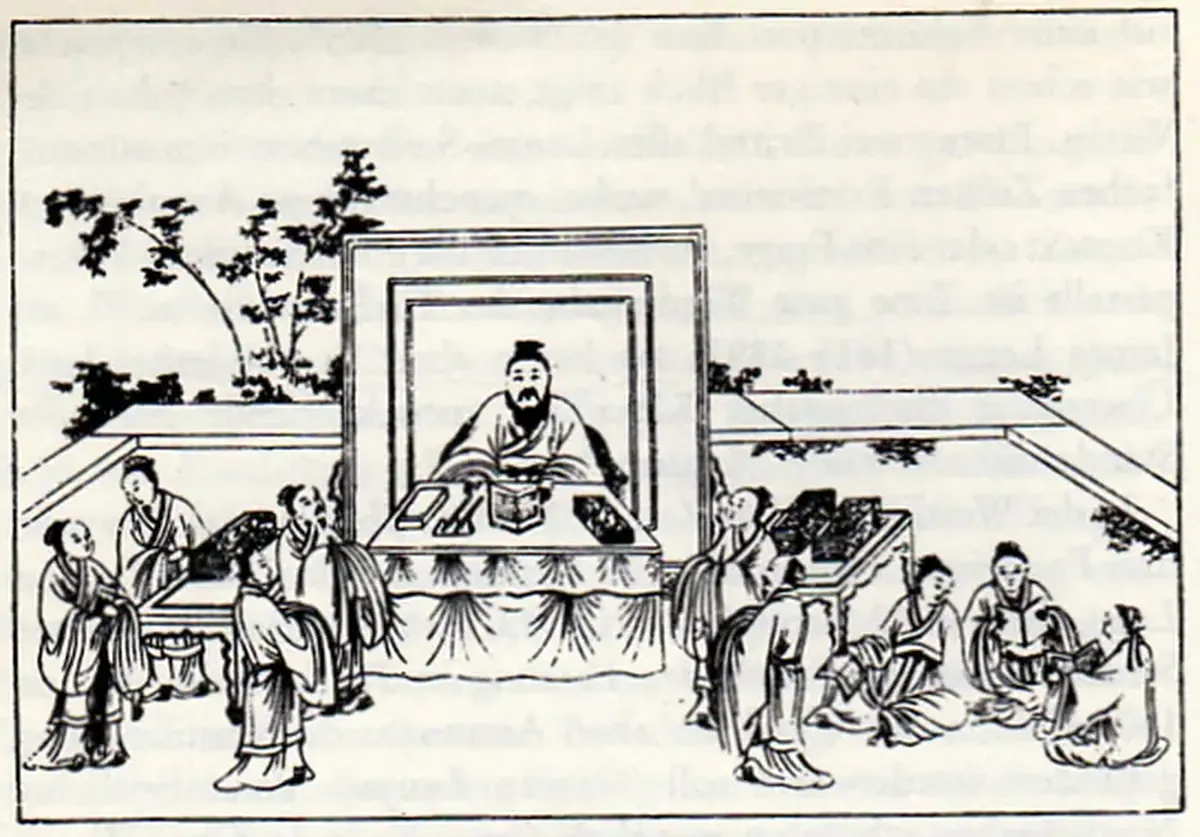
Confucius and his Students (engraving from the Ming Dynasty)
This person, regardless of their background, upholds moral values, fulfills their duties, and serves society. “A noble person” is made by the system of education and upbringing: “Anyone can become noble; they just need to dare.” At the same time, a noble person values others not for the services rendered to them but for their selfless service to the Great Way. This is a key concept in Confucius’s teachings, interpreted as destiny.
The philosopher believed that nothing is more natural than the righteous Way, and nothing is easier than walking this path: “The true path in life is determined by human nature and manifested in well-structured relationships between individuals.” Confucius’s quotes contain a multifaceted understanding of the path and purpose of humanity: “Three paths lead to knowledge: the path of imitation is the easiest, the path of reflection is the noblest, and the path of experience is the hardest.” According to the Master, “A person makes their path great, not the path that makes a person great.”
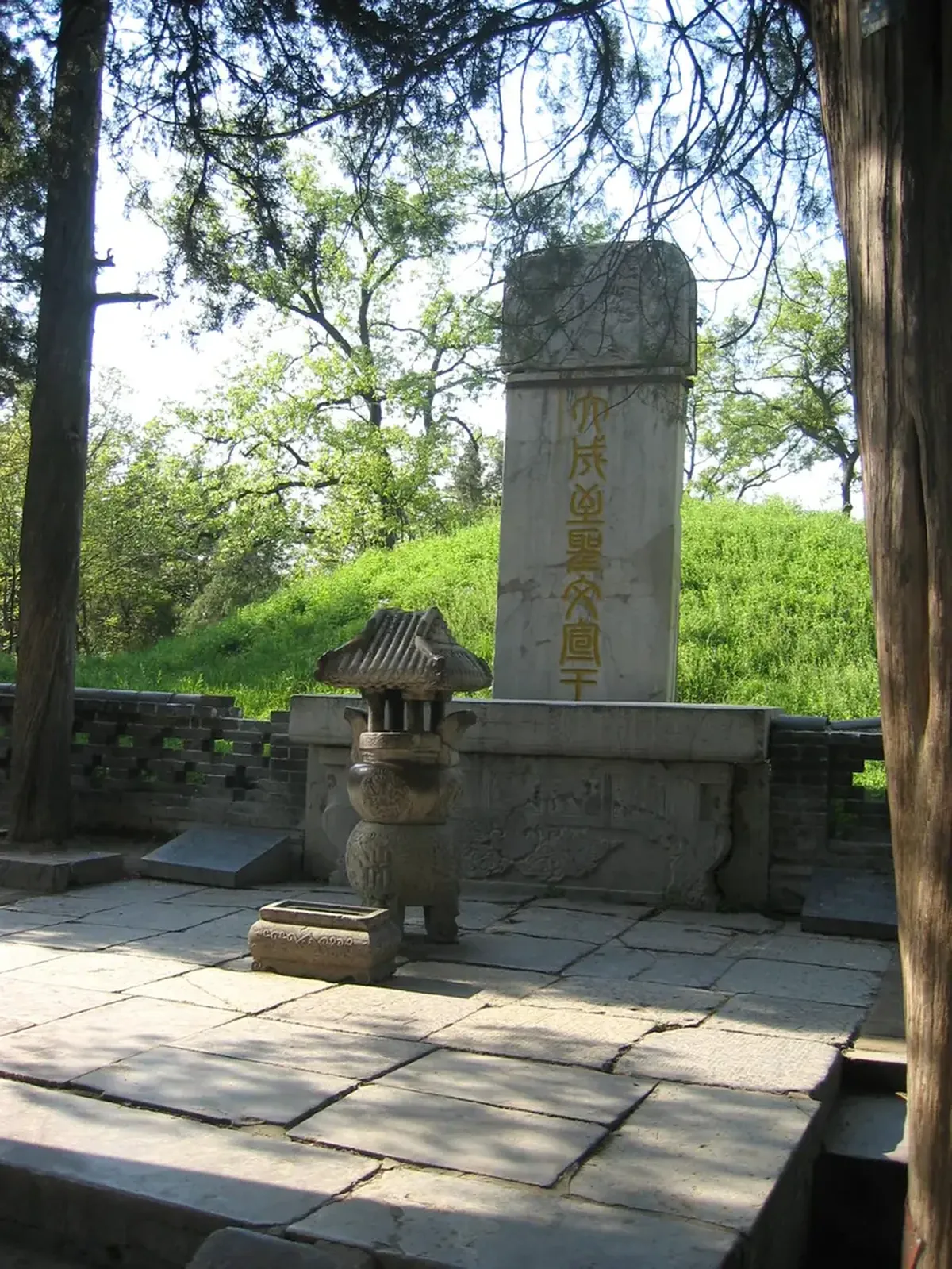
The Tomb of Confucius in Qufu
Aphorisms of Confucius
- In a country where there is order, be bold in actions and speech. In a country where there is no order, be cautious in speech and bold in actions.
- Before seeking revenge, dig two graves.
- If you hate, it means you have been defeated.
- Impatience in small matters can ruin a great endeavor.
- Do not instruct everyone who shows ignorance, but only those who seek knowledge.
- We accept advice drop by drop, yet we dispense it by the bucketful.
- Just as a precious stone cannot be polished without friction, a person cannot succeed without sufficient effort.
- Happiness is when you are understood; great happiness is when you are loved; true happiness is when you love.
- Life is indeed simple, but we insist on complicating it.
- Three things cannot be taken back: time, words, and opportunities. Do not waste time, choose your words wisely, and do not miss opportunities.
- Choose a job you love, and you will never have to work a day in your life.
- Try to be kinder, and you will find that you cannot commit a bad deed.
- In the past, people learned to improve themselves. Nowadays, they learn to impress others.
- When misfortune arrives, a person has given birth to it; when happiness arrives, a person has nurtured it.
- A noble person is carefree in spirit, while a low person is always troubled.
- You can curse the darkness your whole life, or you can light a small candle.
- I do not get upset if people do not understand me, but I feel sad when I do not understand people myself.
